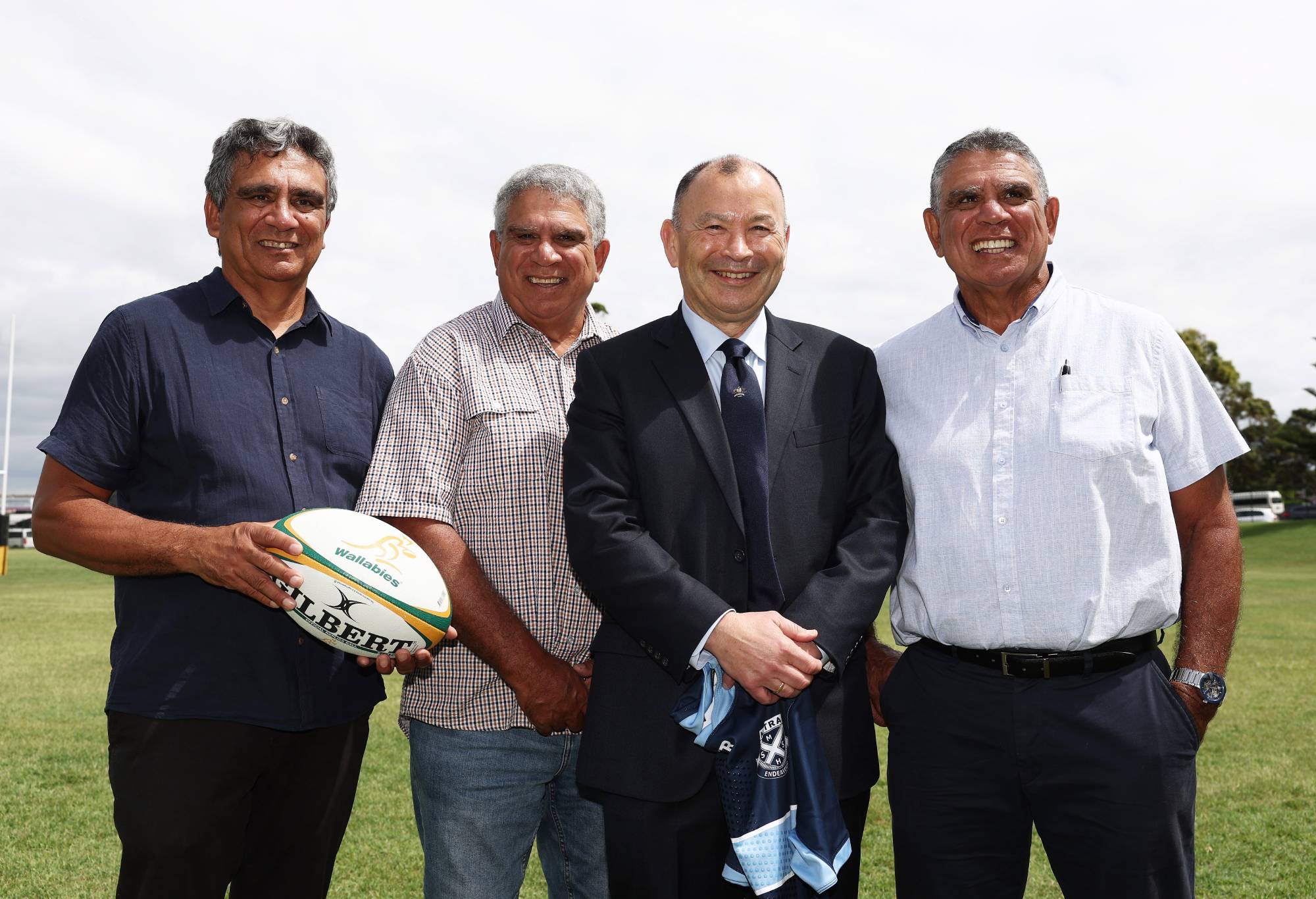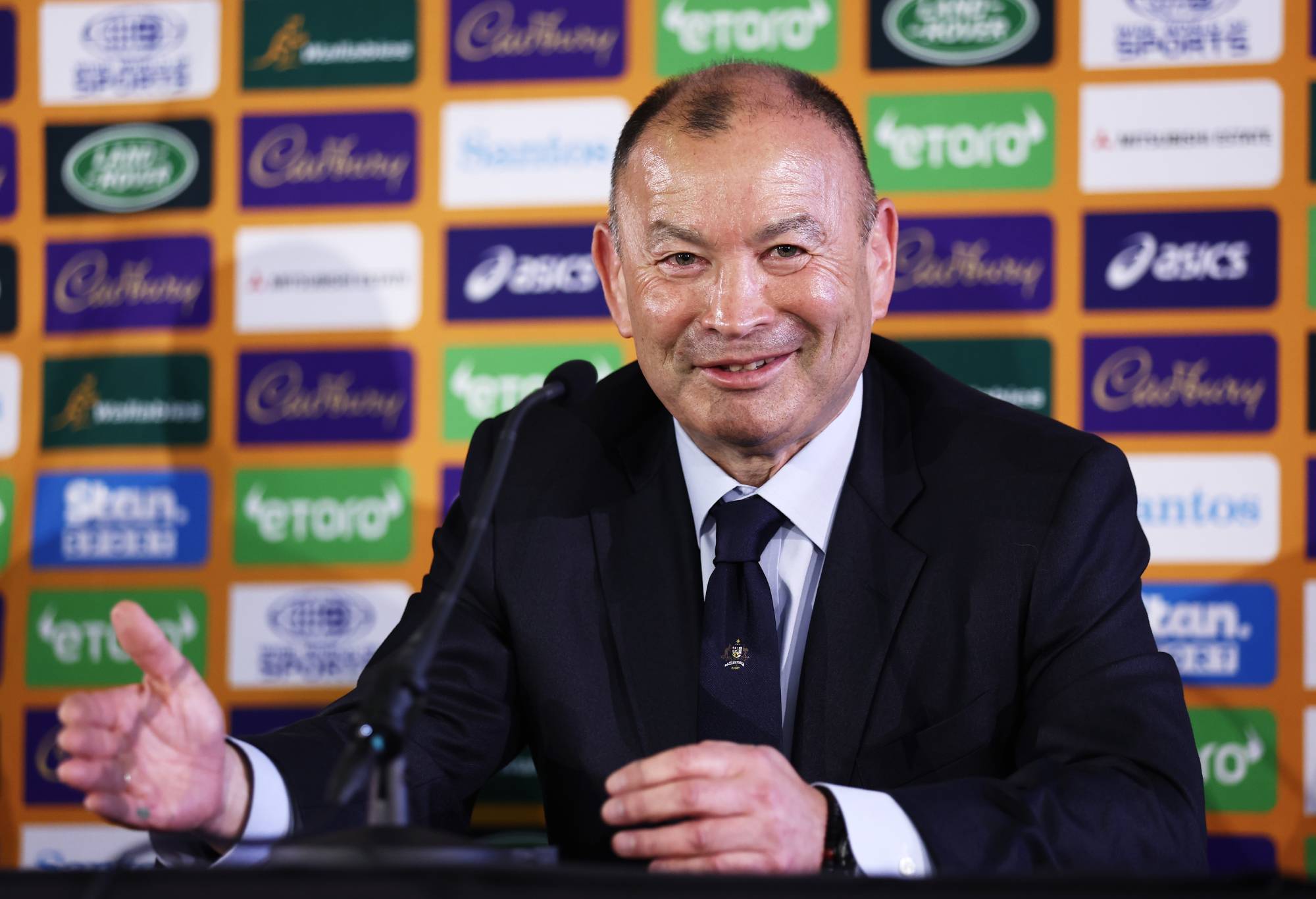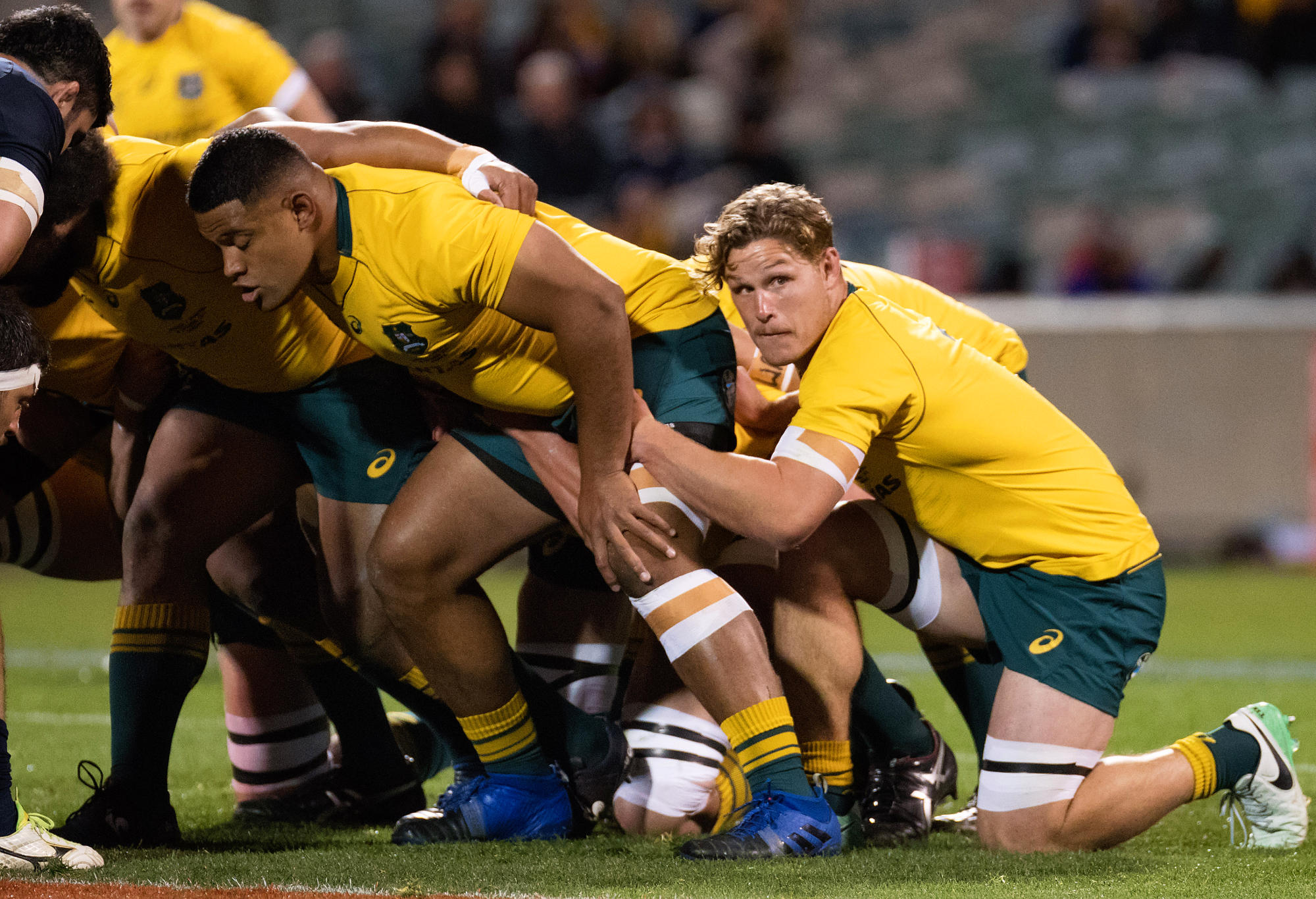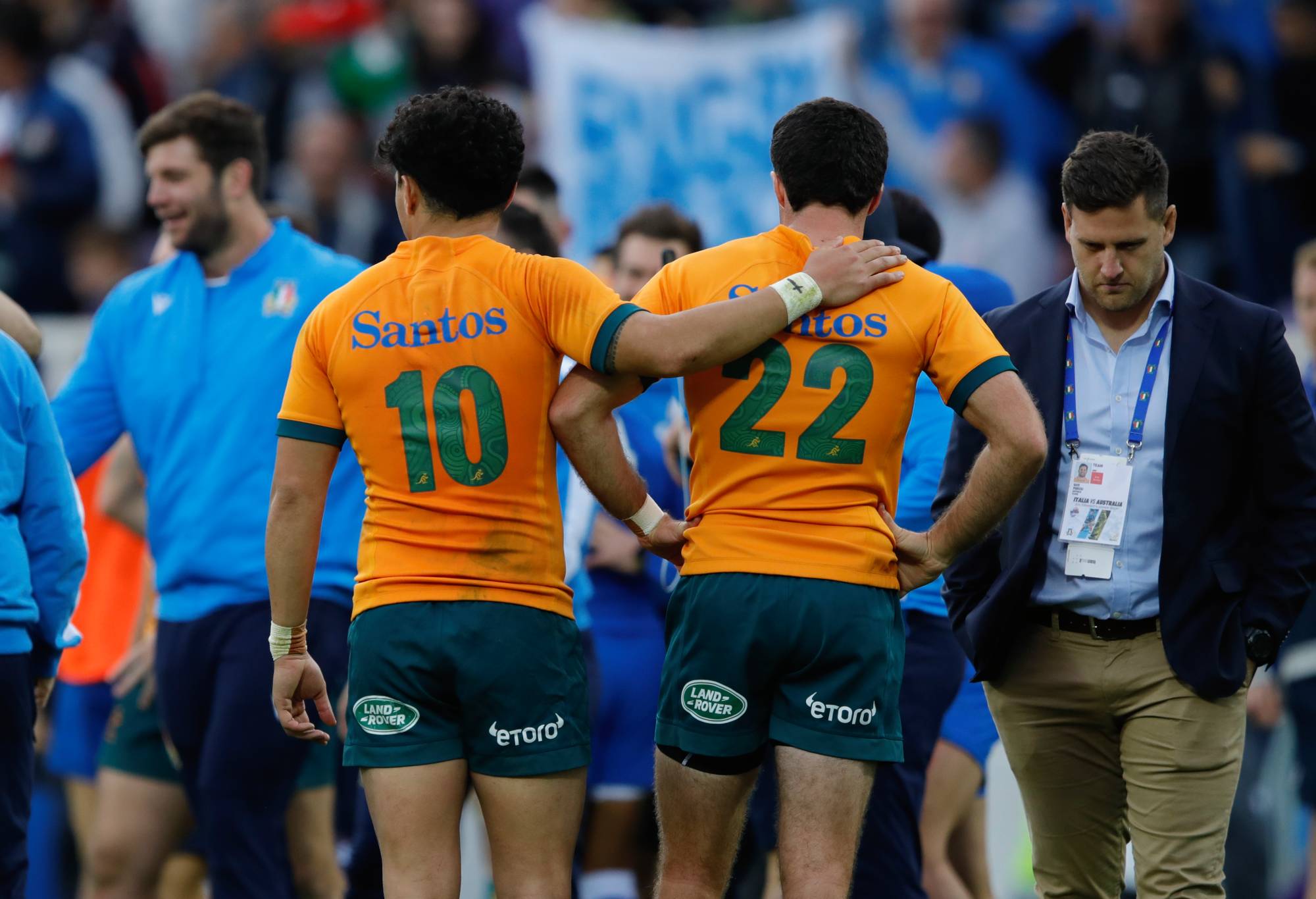When Steve Borthwick was announced England coach, Eddie Jones’ former right-hand man said the biggest thing he learned from his predecessor was his clarity.
Borthwick, who coached alongside Jones at two World Cup campaigns, highlighted the week leading up to England’s semi-final clash against the All Blacks in 2019.
“Normally we would have a discussion around game plans and thoughts, ideas and what we need to do. Often the assistant coaches would present it and say this is the plan, this is what we need to do. Eddie walked in that day and said ‘we’re playing New Zealand on Saturday, all we need to do is one, two and three,'” Borthwick recalled.
“‘If we do one, two, three, we will win this weekend. We have got to get the detail right of doing one, two, three but that’s what we have to do’, and you could see it in everybody. The clarity in the room presented to the coaches and the players of doing one, two, three and that clarity of plan, that was one incredible circumstance. I could talk about lots, but that clarity [stood out].”
On Tuesday, Jones got straight to the point about what his first few months involved as he prepares to take the Wallabies to the World Cup in September.
“There’s three big things,” he said.
“One, the staff, two, the players and three, the way we play.”

Newly appointed Wallabies coach Eddie Jones (C) says the Ella brothers changed rugby in Australia.
Those looking for the answers to the former two things however need not have bothered coming. That will come, in time.
Instead, Jones, back at the high school where his love for rugby was solidified alongside the Ella brothers – Mark and Glen and Gary – lit up a room with his reflections on Australian rugby and how the nation can get back to becoming a rugby powerhouse once more.
“Australian rugby has gone through tough periods before. This is not unusual,” he said.
“If you just look back at when the Ellas came through, in 1977 they played for Matraville High and in 1978 they played Australian schoolboys. They went and won everything in the UK and it set off a movement in Australian rugby.
“At some time around that period, Australia got beaten by Tonga at [the Sydney] Cricket Ground.
“They [the Ellas] changed the way the game was played. They changed that spirit of Australian rugby which was a bit of a mismatch between NSW and Queensland.
“They changed it back to an aggressive running style of rugby and they changed the fortunes of Australian rugby that culminated in the grand slam in 1984 with the world’s best coach in Alan Jones. His only competitor is Clive Woodward but they are having a good go at each other. One of them will work out who is the greatest coach.
“Australia ended up winning the World Cup in 1991 and then 1999 we won the World Cup. We want to start that period again.
“We’re not short of talented players here but talent doesn’t win World Cups. What wins World Cups and wins the hearts of people is teams who play with that same spirit the Ellas had. Being aggressive, playing with a certain panache.
“That doesn’t mean you run with the ball all the time because kicking can be as artistic as running the ball. We want to play with a certain panache. We want to play tough so at the end of tight games, you win those tight games. That’s the traditional Australian digger spirit. We want that in the team and that’s the opportunity for the players this year.
“Where can we take the team? If we play like that, people will want to watch rugby again. Mark [Ella] was saying he doesn’t want to come and watch us play until we play well. We need Mark to be at the ground. That’s good to hear. We want that pressure on ourselves. We want to perform. I’m only a small part of it.”
In one response, Jones spoke about his vision for the game in Australia.
In 30 minutes he did what former CEO Raelene Castle and head coach Dave Rennie couldn’t do in three years in their respective roles.
He noted the importance of making 2023 a “line in the sand” moment for the game Down Under and bringing everyone from the mums and dads “cooking the sausages” to those “painting the lines” to come together and do their bit.
He spoke about the importance of nurturing the grassroots, opening pathways for greater Indigenous representation in the game and the vital role the Wallabies had in ensuring Australians, including his old mate Mark Ella, are proud of their team and rugby in a crowded sport’s market.
“I’m not the messiah,” he declared.
“Everyone’s in this together and we’re all in this together but sometimes you just need someone to beat the drum to get people walking faster and maybe that’s the role at the moment.”
Despite not mentioning one of his assistant coaches by name, Jones will have a fair idea about who he is after and what he wants from them.
He will meet with them on Thursday, but just how many survive from the Dave Rennie era remains to be seen.

Eddie Jones revealed little about what changes he would make to his staff and team but spoke about his vision for the game. Photo: Matt King/Getty Images
Dan McKellar, for the short-term at least, is considered by some as an important figure in the continuity of the squad given his deep understanding of the current players, his coaching pedigree and the fact he’s run a program himself.
It’s believed there is an appreciation of Laurie Fisher’s service to Australian rugby and his technical knowledge around the breakdown.
But Petrus du Plessis’ future with the Wallabies as scrum coach is shaky, with Brumbies forwards coach and former Wallaby prop Dan Palmer highly regarded.
Jones knows the importance of the set-piece, having seen his English side smashed at the scrum against the Springboks in the World Cup final and, most recently, his final Test at Twickenham.
Indeed, Jones’ former scrum coach at England, Matt Proudfoot, who oversaw the Springboks’ World Cup success in 2019, said he felt responsible for the Australian’s axing after they copped another beating in the set-piece.
“I have a lot of regret about that game [against the Boks],” Proudfoot recently told the Daily Mail.
“The scrum didn’t fire. It felt like the 2019 final all over again. If we’d been more successful at scrum time, things would have been different. And if we’d won that game maybe we would still all be there, back in the cold weather of England.
“I feel responsible. I wouldn’t change selection but I would change the way I coached the scrum that week. Less technical, more abrasive.
“I take that on myself. I prioritised the technical side that week, changing the engagement sequence to something faster and I put speed as the big rock we were chasing. Maybe I should have chased the fight instead. I take that on myself.”

The scrum will be integral for the Wallabies to get quick ball from. Photo: Steven Markham/Getty Images
Wallabies tight-head prop Allan Alaalatoa recently described Palmer as the best scrum coach he has worked under while Brumbies head coach Stephen Larkham said he was regarded as one of the world’s best and Australian rugby was fortunate to keep him after being hotly pursued overseas.
It’s why Palmer, who spent time coaching Suntory in December, looms as one of the changes in the weeks to come.
Who replaces Scott Wisemantel, who abruptly resigned at the start of the month, remains to be seen.
Jones likely will have made contact with Wisemantel, who previously worked with him at the Wallabies, Japan and England, but it’s unlikely the respected assistant will return any time soon.
But he does have options both home and abroad ranging from Chris Whitaker to Stephen Larkham, Andy Friend and Peter Hewat, or left-field options like Matt Giteau and Glen Ella.
Bringing someone in with a rugby league background remains a distinct possibility, too.
As for the players, Jones stayed away from the specifics of players and the leadership.
He shrewdly left the door ajar for youngsters to grab the bull by the horns, noting rising Waratahs playmakers Tane Edmed and Ben Donaldson, while notably listing overseas-based professionals like Quade Cooper and Bernard Foley as well as mentioning Reds veteran James O’Connor and Brumbies No.10 Noah Lolesio.
He added: “It’s going to be competitive, but we’re definitely going to have to decide the hierarchy of 10s, because that cohesion part that Ben Darwin makes a living out of – he had to make a living out of something – he’s made a living out of cohesion. But it’s true what he says.
“You want cohesion, particularly in the spine of your team, so we’ll try to get to that as quickly as we can.”

Eddie Jones does not believe “mental scarring” is a thing in professional sport. Photo: Timothy Rogers/Getty Images
Jones was emphatic about one other area: mental scarring.
While Michael Cheika previously believed the Wallabies were being affected by the poor results at Super Rugby, Jones, who admitted that “emotional state” of his players was something that could turn narrow losses into victories, said mental scarring was not a factor in professional sport.
He highlighted the Springboks’ turnaround under Rassie Erasmus ahead of the 2019 World Cup as proof that fast turnarounds could happen.
“Just look at the Springboks in 2018; I think 2016, 17 and 18, the Springboks had a winning record of under 30%. Rassie Erasmus comes in, sets alight TikTok and the team changes,” he said.
“It changed the team and they immediately went from a team that was probably the weakest of the Rugby Championship to World Cup champions.
“Mental scarring is a not a factor in sport. It’s the ability of a player to want to be at their best that’s the most important thing. All we want is players that want to be at their best and if they want to be at their best, then any previous experience they’ll cope with.
“I’m not worried about the history of that. I’m worried about the team gelling, getting together with the culture we want, being tough on each other and the opposition and those close losses will turn into close wins.”
One thing is certain, Jones doesn’t care about his perception, what has been said about him in the past nor what his critics still believe.
From talk of players bringing mirrors to camp to misconceptions and even the negativity dished out from his namesake Alan Jones, Jones would not have survived as an international coach for two decades had he taken each comment to heart.
He subscribes to Bob Dwyer’s belief that if you start listening to them, join ‘em.
































































































